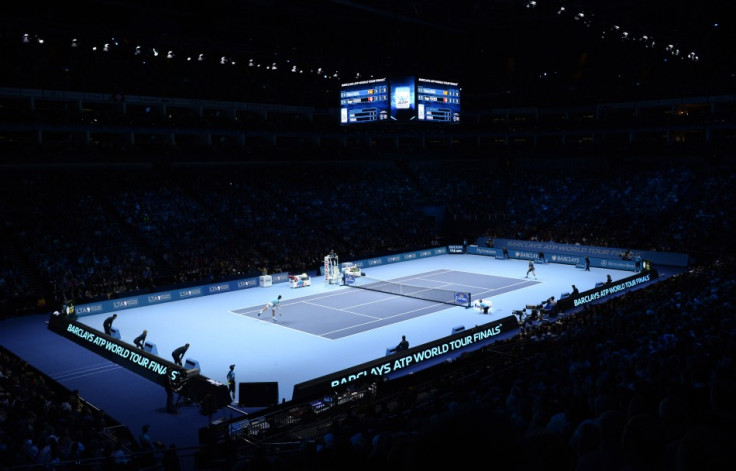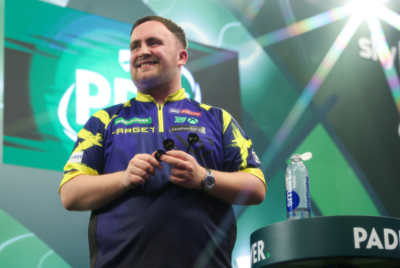ATP World Tour Finals 2013: Season Finale Lacking Sparkle

A week which began with demands to move the ATP World Tour Finals from its current London home, ended with an inadequate and anticlimactic final which not only draws questions over the role of the season ending finals but the damage inflicted upon the sport's depth by such overwhelming dominance at the top.
The main protagonists in Monday's final hit the headlines across the opening days at the O2 Arena, both demanding that the event, whose contract in Greenwich runs until 2015, be moved. But their motives were entirely contrasting.
While defending champion Novak Djokovic claimed tennis' profile would benefit from the venue being rotated, perhaps to South America or back to Asia, Rafael Nadal only had eyes for his own interests, namely his poor knees.
Having returned from seven months out to reach the final in London after four successive wins, finishing the year as world No.1 and winning 10 titles, four of which were hard court events including the US Open - his second major of the calendar year - you can't help but feel the Spaniard has undermined his own argument.
The clamour for the tour finals to remain in the English capital certainly remains, even if the absence of Wimbledon champion Andy Murray saw ticket sales reduced, expectedly, from 2012. Although organisers would have us believe matches were packed to the rafters, despite 261,247 fans buying tickets, the reality was somewhat different. Empty seats accompanied many singles matches, most notably in the semi-final and final. Even so, where else around the world could attract such volume of numbers?
The British No.1's return for 2014 will be a better indicator as to the desire for an extension to the O2 Arena contract and in the event we remain in London, fans can look forward to several more years of the ATP's entertainment extravaganza.
Whether it is a leading brand, an epileptic fit-inducing graphic, deafening music or bolts of light, the ATP Tour Finals produces an all-round entertainment experience that few sporting events can, or want to, compete with. Everything to all people certainly, although how many of them are sports fans is hard to tell.
One major argument against a move from London to another continent is the current structure of the ATP tour, the regular season of which climaxes a week previous in Paris. Next year will see a week break in between the two events but remaining in the same time zone across an enduring part of the season is a great luxury for the top eight players.
Players have often resisted from using leg-weariness as an excuse ahead of the season finale. The schedule across the season is anything but conducive, so one extra, poorly timed tournament rarely sparks furore.
In 2013 however, performances did the talking. David Ferrer played his three matches in spirit rather than body. Nadal, whose run in Paris saw him play two round robin matches in as many days, was also affected despite his four wins. Even the ultra-fit Djokovic complained.
Nevertheless, we're constantly told we live in a golden era of tennis. Neil Harman's 'Court Confidential' is as much a glittering endorsement for the sport's current guise as it is a story behind the baseline. But if the season ending tour finals is meant to be a celebration of such a shining year, it fell desperately short of expectation.
The tournament was littered with one-sided matches, particularly at the spark end. A look at the head-to-head records show that Djokovic and Nadal possess a winning record over every other player to qualify. In some instances they've never lost a match, even a set.
There is little doubt the world's No.1 and 2 of any sport evoke dominance and authority, but you fear Djokovic and Nadal, for all their brilliance on the same court, are taking the sport in a dangerous new direction.
The year of 2013 might have seen grand slam semi-final debuts for Stanislas Wawrinka, Richard Gasquet and Jerzy Janowicz, and a maiden final for Ferrer, but staying power is what is key. An overwhelming points difference at the end of this year points towards a worrying trend of dominance which is damaging the depth of tennis.
Much is thought of the likes of Grigor Dimitrov of Bulgaria, Milos Raonic of Canada and Bernard Tomic of Australia but you fear a glass ceiling will restrict their improvement should Djokovic and Nadal continue to control. As Monday's showpiece final showed, not like Roger Federer's authority of old, it's not even offset by entertainment.
And what of the role of the tour finals? Players consider the event only second to the grand slams yet in 2013, with such withering performances, uncompetitive matches and a world No.1 decided before the final, the tour finals sit between the rock and a hard place. Of late, it has appeared to be the ATP's answer to the growing profile to the Grand Slam Committee's major events.
So heading in 2014, is tennis in transition? Let's hope so.
© Copyright IBTimes 2025. All rights reserved.






















